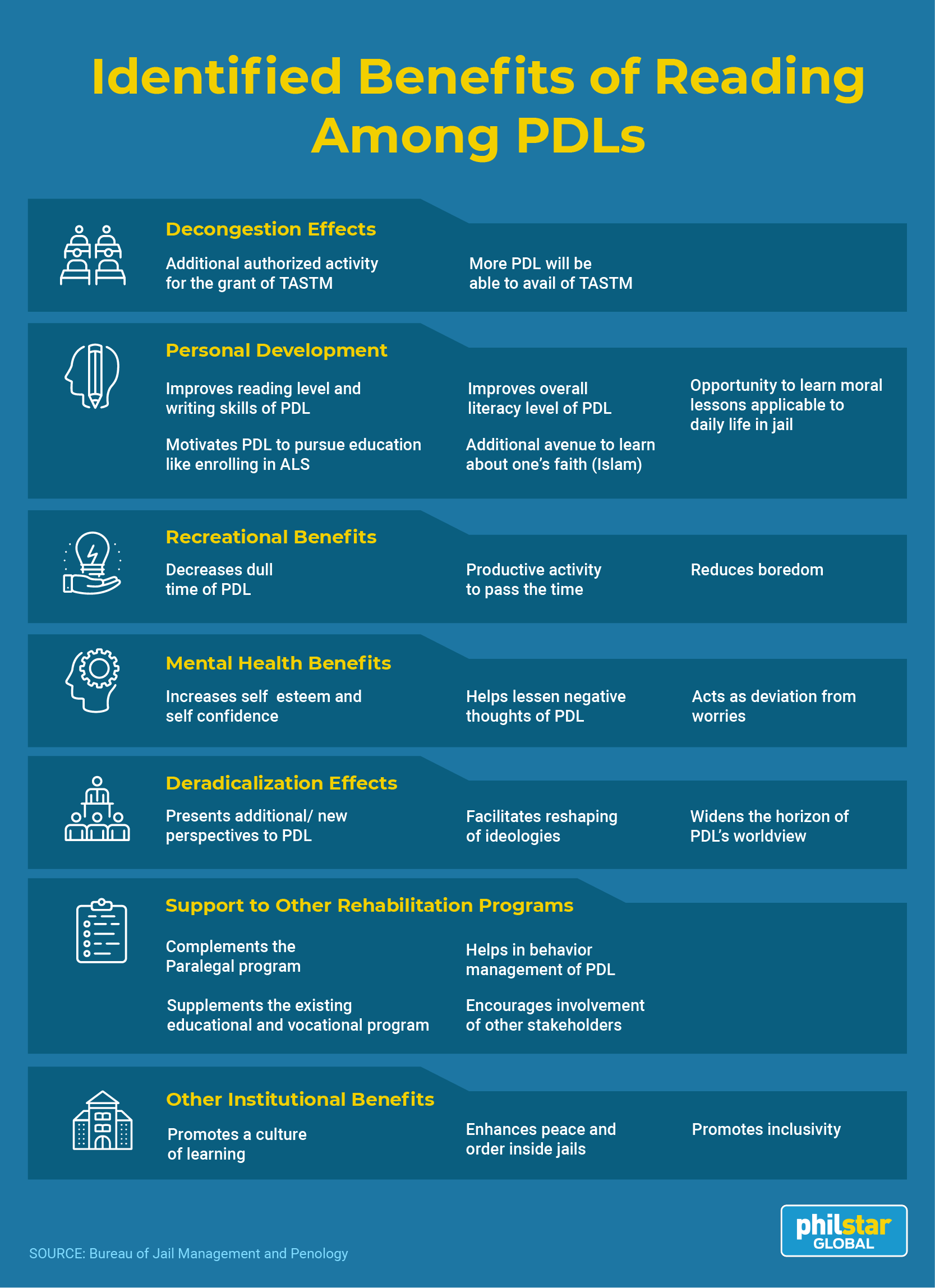Books behind bars: Inmates read their way out of cramped jails
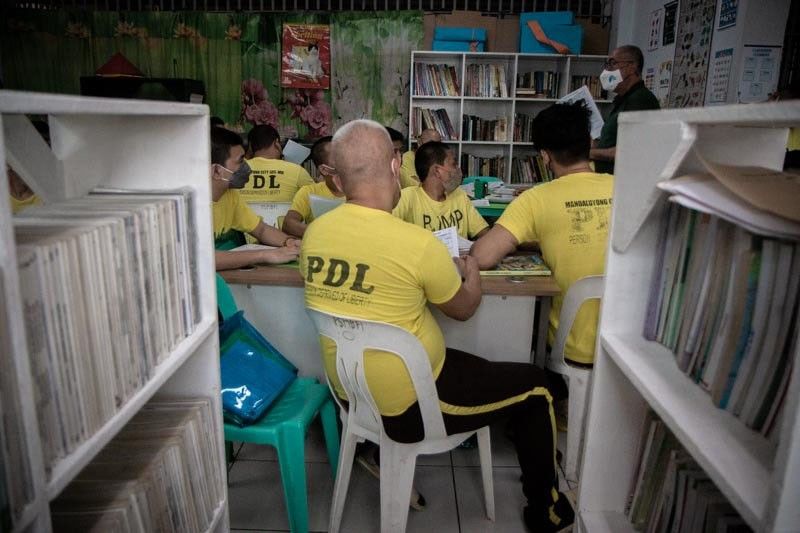
MANILA, Philippines — Horror stories of overcrowded jails have been a persistent narrative in the Philippines, a country that sends even small-time criminals to prisons. But officials vow that they are turning over a new leaf: Dungeon-like prisons are "old tales" now and Persons Deprived of Liberty can now read their way out of the jail — or at least cut their sentences shorter.
In March, the Bureau of Jail Management and Penology, in partnership with the United Nations Office on Drugs and Crime, launched “Read Your Way Out (RYWO): Advancing Prison Reform through Libraries for Lifelong Learning in Places of Detention.”
Under this new program, jail libraries shall be put up and Persons Deprived of Liberty (PDLs) can spend their time there and earn time allowances to cut down their prison sentence and help decongest jails . Thirteen jails nationwide have been picked for pilot implementation.
Details of the memorandum circular are still being ironed out, Chief Insp. Jayrex Joseph Bustinera, BJMP spokesperson, said in a virtual interview with Philstar.com last March. They are also still waiting for the arrival of books that will fill these new library facilities.
The idea behind the program is basically compliance with international standards. "We are really trying to comply with the Mandela rules, we want to comply with all the rules," Bustinera said, referring to the UN Standard Minimum Rules for the Treatment of Prisoners.
Rule 64 of the Nelson Mandela rules states that "every prison shall have a library for the use of all categories of prisoners, adequately stocked with both recreational and instructional books, and prisoners shall be encouraged to make full use of it."
Some jails already have libraries, but the memorandum circular will institutionalize these facilities and allow libraries outside the pilot implementation of the program to also harmonize their Good Conduct and Time Allowances rules.
"One part of the memorandum circular is the compliance of regions and jails to coordinate with local libraries — because each municipality and city has libraries or academe. The percentage shall be followed," Bustinera said.
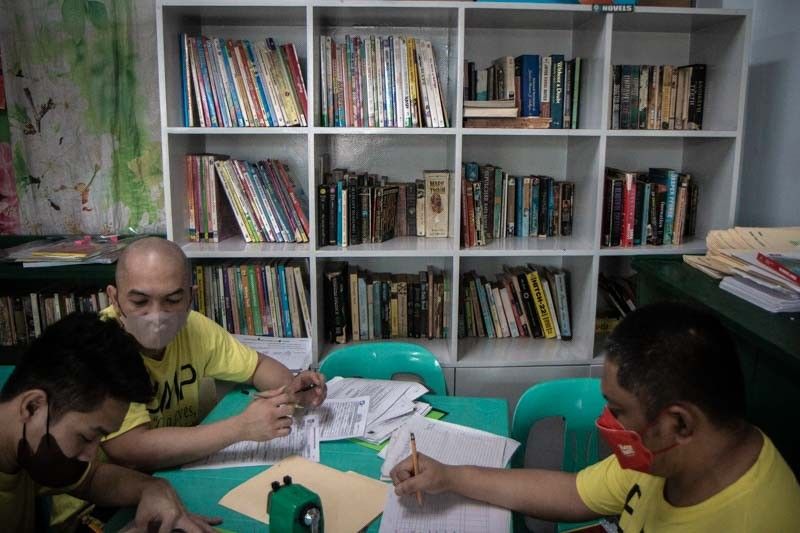
Republic Act 1092, or the "GCTA Law", amended the Revised Penal Code in 2013. Under this law, the government increased the time allowances PDLs may earn for good behavior, with a minimum of 20 days deduction per month in the first two years of imprisonment — up to deduction of 30 days a month in the 11th and successive years of imprisonment.
READ: Good law, bad man: RA 10592 and rape-slay convict Antonio Sanchez
It also allowed a deduction of 15 days, for study, teaching or mentoring service time rendered. With RYWO, PDLs can augment the hours needed to earn Time Allowance for Study, Teaching and Mentoring — currently filled by attending classes under the Department of Education’s Alternative Learning System (ALS) or taking vocational training — with library activities.
The implementation of the law was dragged into controversy in 2019 after a notorious rape-slay convict was reported to be released because of it. GCTA has resumed after a review.
READ: After suspension and call for transparency, government quietly resumes GCTA
Starting a new chapter
The GCTA law does not only enforce good behavior — including encouraging study — among PDLs, but also helps significantly in addressing the perennial congestion problem in Philippine jails.
International criminology expert Raymund Narag explained to Philstar.com that research into PDLs' experiences identified four major areas for their eventual reintegration into society. These are family acceptance, livelihood or work opportunity, community acceptance and a cognitive mindset to resist peer pressure.
Narag obtained his PhD from Michigan State University School of Criminal Justice. He is currently an associate professor at the Southern Illinois University, with research interest in "understanding community-based processes that mitigate the proliferation of crime and delinquency."
RELATED: Remulla, prison reform expert aim to improve correctional system in Philippines
He said families should be contacted and be readied before the release of their loved ones — and this means that their ties should be kept intact even when their family member is serving time. PDLs should also acquire skills that can help them find livelihood after release.
Aside from a house to come home to and expected income, the PDL's community should also be prepared to take them back. Having to a cloud of doubt over them all the time would make it more likely that PDLs later end up returning behind bars, Narag said.
"Reading is a very transformative process. It changes your way of life. It changes your outlook and especially that the materials that you read are cognitive-based," Narag said, adding thought patterns like believing theft or murder can be justified can change.
"If there are materials or reading materials that specifically challenge these criminal thinking patterns, then you are able to introduce a new cognitive mindset," he said.
RELATED: Pandemic locks PDLs' families out of prisons
Jail libraries under the RYWO program are expected to have 20% legal resources, 30% vocational resources, 40% fiction and 10% children’s books for family visitors. There will also be some board games which PDLs can play with their visiting family members. Children's books and board games shall allow detainee parents to bond with their children when they visit.
According to the BJMP, the PDLs will also be able to do the following activities at the libraries:
- Attendance in library orientation seminars
- Reading inside the library or in the designated reading corners
- Conducting offline and online research at the jail library
- Attending reading tutorials
- Participating in jail library outreach services
- Functioning as a library assistant, reading coordinator or reading buddy
"By reading, you introduce new ways of doing things and it will change their outlook in life so that when they get released they have a better chance of reintegration," Narag said.
He said that reading literature at the jail libraries should have something on the role of family and community acceptance, and the person’s self-efficacy to improve survival skills. "That is the overall goal of the Reading Your Way Out program, so the quality of materials they will read are very important, at the same time, it enhances their coping skills when they are released," he added.
After a journey, returning home
At the Mandaluyong City Jail, which opened in July 2021, a library also houses a makeshift classroom for ALS students — facilitated by La Salle Greenhills — during different times of the day.
On a Wednesday afternoon in March, Bro. Vincent Fernandez, FSC and their team leader Catherine Laguitan from LSGH were teaching PDLs how to fill out government forms such as from PAGIBIG and SSS.
Fernandez told Philstar.com that the focus of their program for Mandaluyong City Jail PDLs is "already to make them look ahead in returning to the mainstream and this time with a better perspective." They also teach communication skills in English, career and life skills, understanding self and society. Basic education subjects such as Science and English are also taught.
If a PDL completes their sentence without finishing the program, that is not the end of their learning journey. "The moment they are released, they are still part of the program, they can come to La Salle," he added.
Apart from the ALS classes, Mandaluyong City Jail PDLs' days are filled with activities that help them towards reformation.
PDLs also have their own beds with some spare spaces in their dormitory inside the jail. There is a basketball court where PDLs also do their sunning activity — as required — and where they play against each other in tournaments for grocery items.
The nine-floor facility also houses a massage parlor, a barber shop, a music and arts corner, a bakery and even a commissary that serves brewed coffee. They have computers for electronic burials that allow PDLs to watch funeral processions of loved ones they cannot visit, while female PDLs even held a gown-making contest as one of the activities for women’s month in March.
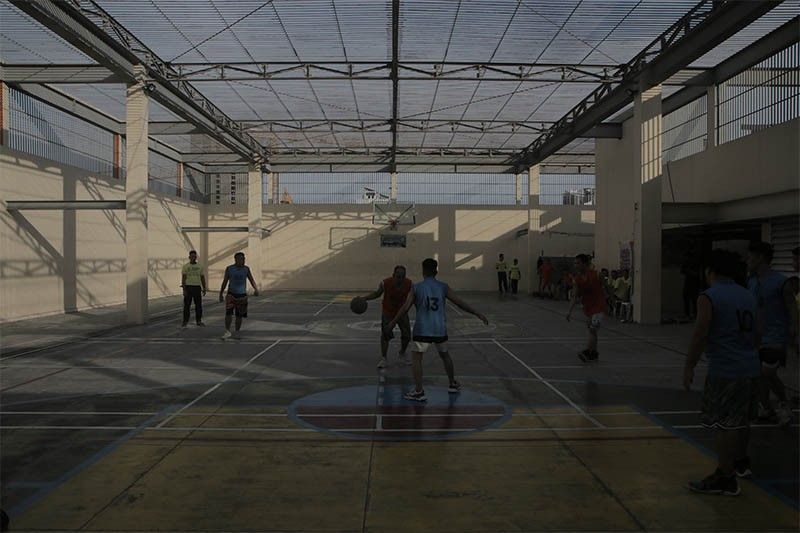
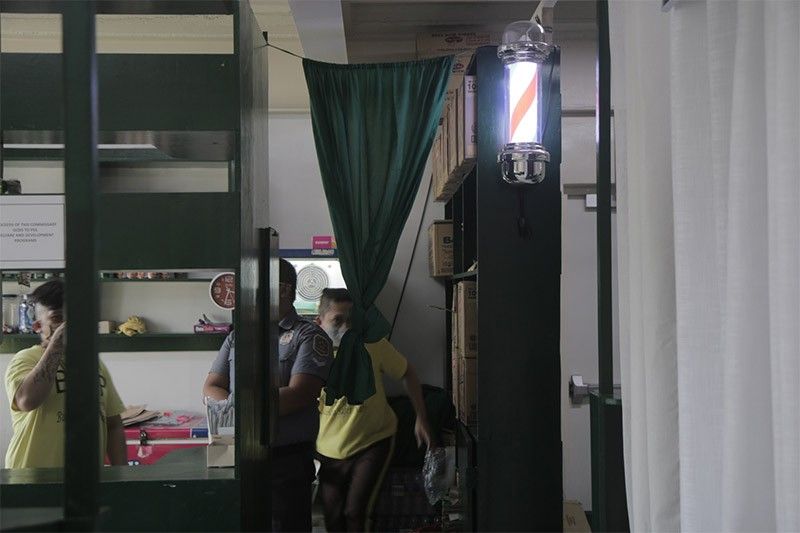
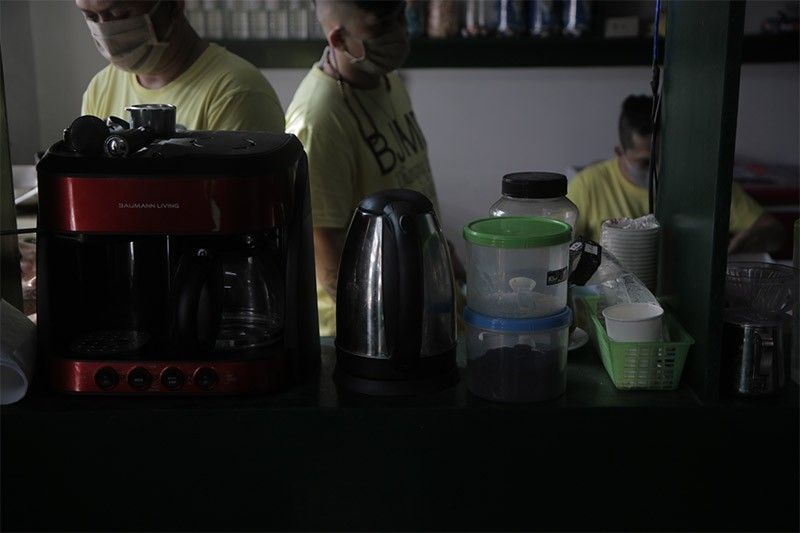
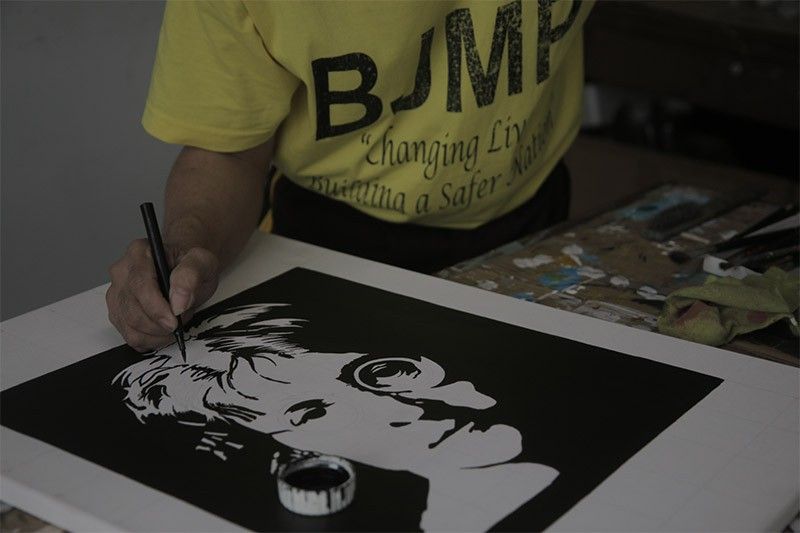
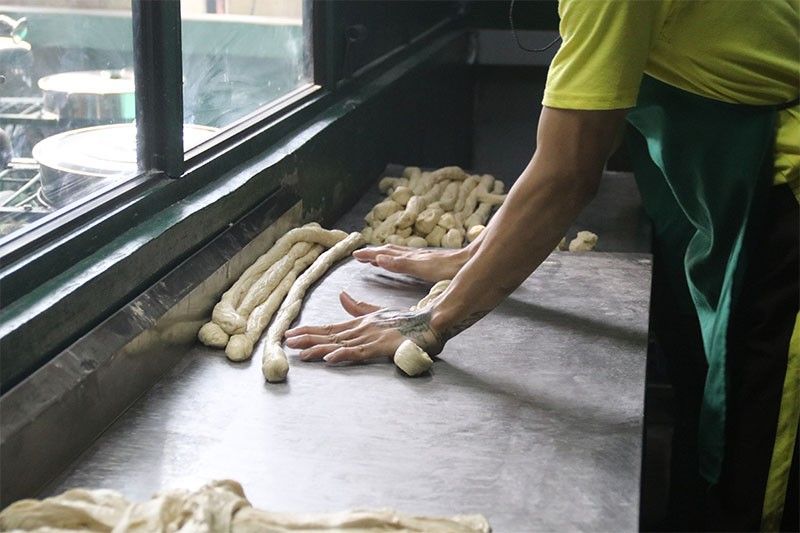
But Supt. Lino Soriano, jail warden, recognized that they are able to do this because of the space the nine-floor facility gives them. They too were able to group PDLs according to the nature of their offenses and the risk that they pose.
"High-risk" offenders who are recidivists or who get in fights are held on a separate floor. The elderly, Persons with Disabilities and LGBT inmates also have their own dormitory.
Soriano said grouping is meant for the different programs meant to rehabilitate specific offenders. "For drug-related cases, [we have] more on sports and recreation, because it is part of their detoxification process,” he said.
Quoting Russian novelist Fyodor Dostoevsky, Soriano stressed that "the degree of civilization in a society can be judged by entering its prisons."
"We are done with old school dungeons, dark prisons, life being made difficult for PDLs… our approach now is reformative, humane," Soriano told Philstar.com.
With proper facilities for PDLs, Soriano — who handled several prisons before becoming warden of the Mandaluyong city jail — said there would be little reason for gangs to form.
More than new facilities, a change in policy
But Narag said that while building adequate facilities will also allow government to take better care of prisoners, this is not a sustainable solution. He pointed out that the Philippines has "very limited options for alternative to incarceration," such as bail, release on recognizance or parole and probation.
Incarceration in the Philippines follows the tenets rehabilitation, which would create the ideal scenario for PDLs. But following this would require resources such as proper space and facilities and personnel who are trained to rehabilitate and reform PDLs — and the Philippines lack enough resources.
"We don’t have enough resources for structural conditions like space, facilities or equipment we don’t have the proper training to do it and what happens now, by default, not by design, but by default, we become a very punitive penal system and correctional system," Narag said.
With limited resources, jails are given only P70 daily to spend food of each PDL. Overcrowding has also long been a problem, creating "subhuman" conditions inside jails and making the confinement of PDLs further punishment.
Narag said that even if the government pours in a lot of resources into the penal system, retaining a punitive criminal system will still lead to congestion.
"You build more and more jails, [people] are going to keep coming in. Eventually, our prisons will again be filled," he said.
"So building more prisons and building more jails is not really a sustainable solution," Narag said.
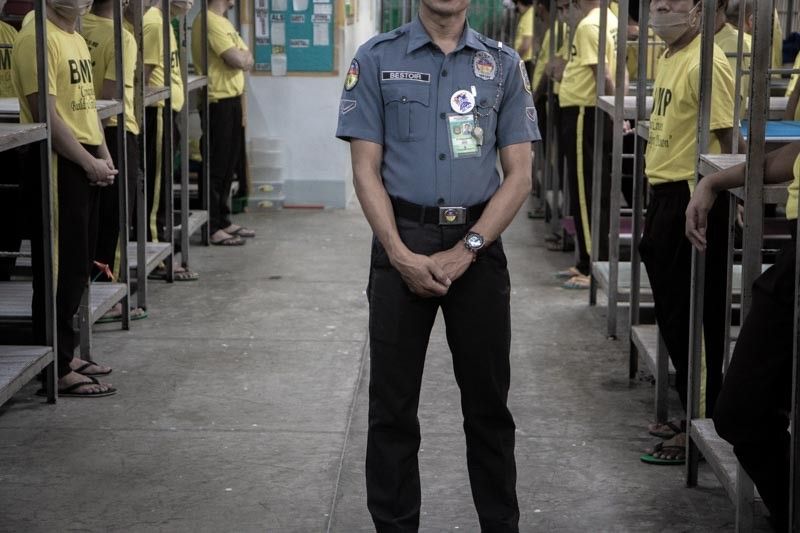
A more sustainable way to address prison congestion is "to rethink our policies of why we incarcerate so many people." He said that detention and arrest "should be limited to those PDLs or those accused or those whom we call high-risk criminals, those who have a high chance of reoffending or high chance of committing continuous crimes."
As an alternative, he said, the government can consider mediation and other forms of accountability for low-risk offenders.
“We have to maximize the use of probation, we have to maximize the use of parole we have to maximize the use of home confinement. We have to maximize the use of furlough, work furlough. We have not explored all those in the Philippines. And these are ways to develop a more integrated approach to correctional reforms," Narag said. — Photos and videos by EC Toledo, Martin Ramos; infographic by Enrico Alonzo
- Latest
- Trending






